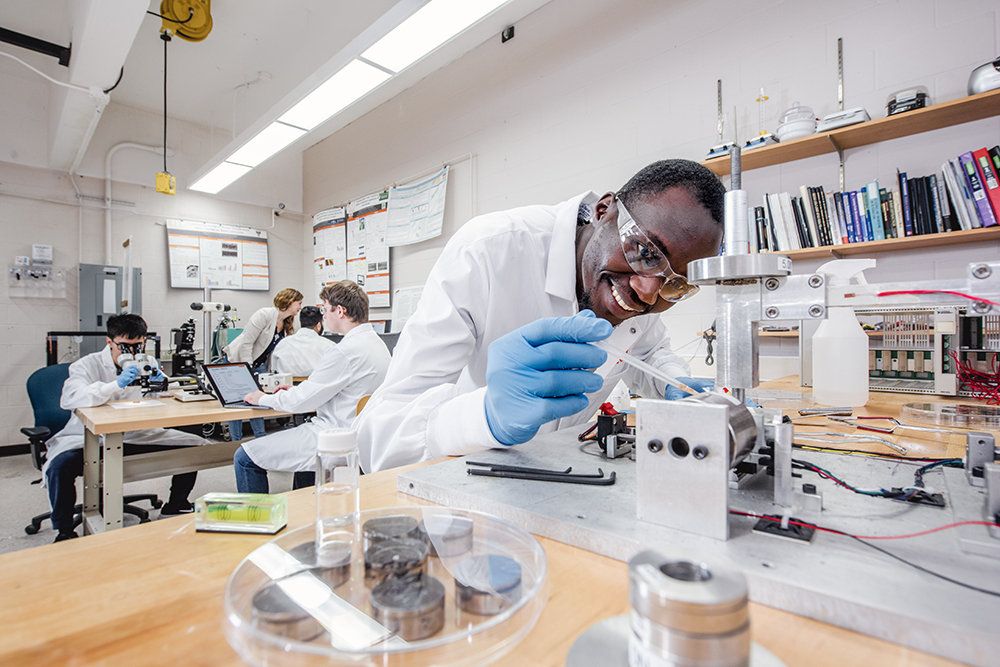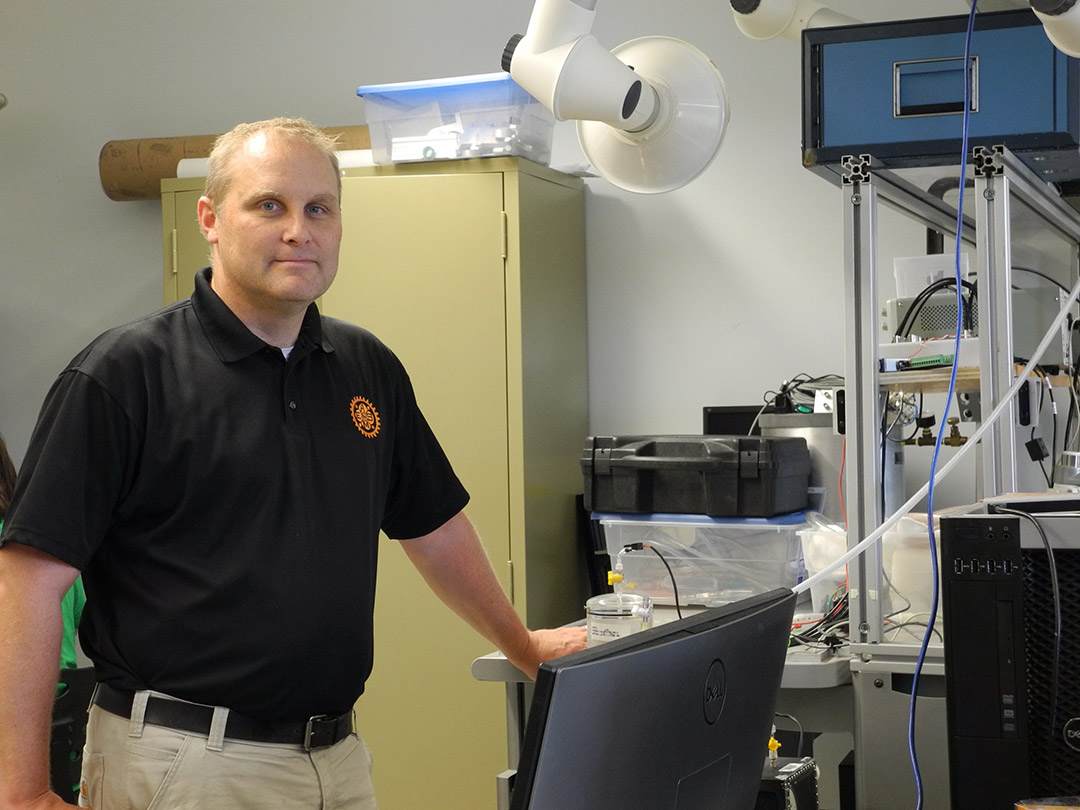Paving the Way for Sustainable Lubrication Solutions in Industry
This research develops sustainable, renewable lubricants to reduce friction, wear, and energy loss in industrial systems.

More than 10% of the world’s total energy is lost through friction and wear. Possibly, friction and wear cause more failures than fracture and fatigue. Economically, these losses can be saved through advancements in tribology and lubrication.
Lubricants play a crucial role in reducing wear and friction in mechanical systems, significantly extending their lifespan and ensuring smooth operation. However, the composition of traditional lubricants often poses environmental concerns, raising questions about their ecological impact and long-term sustainability. Conventional petroleum-based lubricants can release hazardous pollutants during production and leak harmful substances when disposed of. Furthermore, the fact that they are limited makes resource depletion problems worse and increases reliance on fossil fuels. Therefore, even while conventional lubricants are excellent at their primary job of reducing friction, their negative environmental impact makes it necessary to investigate alternative, environmentally friendly lubrication solutions to protect the earth and mechanical systems for as long as possible.
The mission of RIT’s Tribology Lab is to improve the wear and friction performance of engineering systems, ultimately extending the lifespan of components while conserving energy and promoting sustainability. With the advisory of Dr. Patricia Iglesias Victoria, Davis Kipkania Kiboi (Ph.D. student) is investigating the lubricating performance of a family of new lubricants which are potential environmentally friendly lubricants and additives.
This new family of lubricants is synthesized by using only renewable, biodegradable, and biocompatible products. The aim is to provide fundamental knowledge for designing more effective and environmentally friendly lubricants for use as neat lubricants or additives. The research question focuses on evaluating the lubricating performance of these lubricants as neat and additives in different metal contacts and comparing them with polar and nonpolar base oils commonly used in lubrication. Experiments to characterize the physiochemical properties, friction, and wear tests are conducted to assess their lubricating performance. The results demonstrate that this family of lubricants exhibits good lubricating properties, when they are used as both neat lubricant and additives to conventional synthetic base oils. The molecular structure of lubricants plays a significant role in enhancing their lubrication efficiency. The low toxicity of this family of lubricants makes them promising candidates for sustainable lubrication solutions.
The employed method includes synthesizing the lubricants, characterizing their thermal and physical properties, and conducting friction tests with the desired metal contacts. The wear characteristics of the lubricants on the metal contacts are also investigated. The outcome of this research is to serve the goal of minimizing the industrial economic loses due to tribology and promoting sustainability for a better world.













